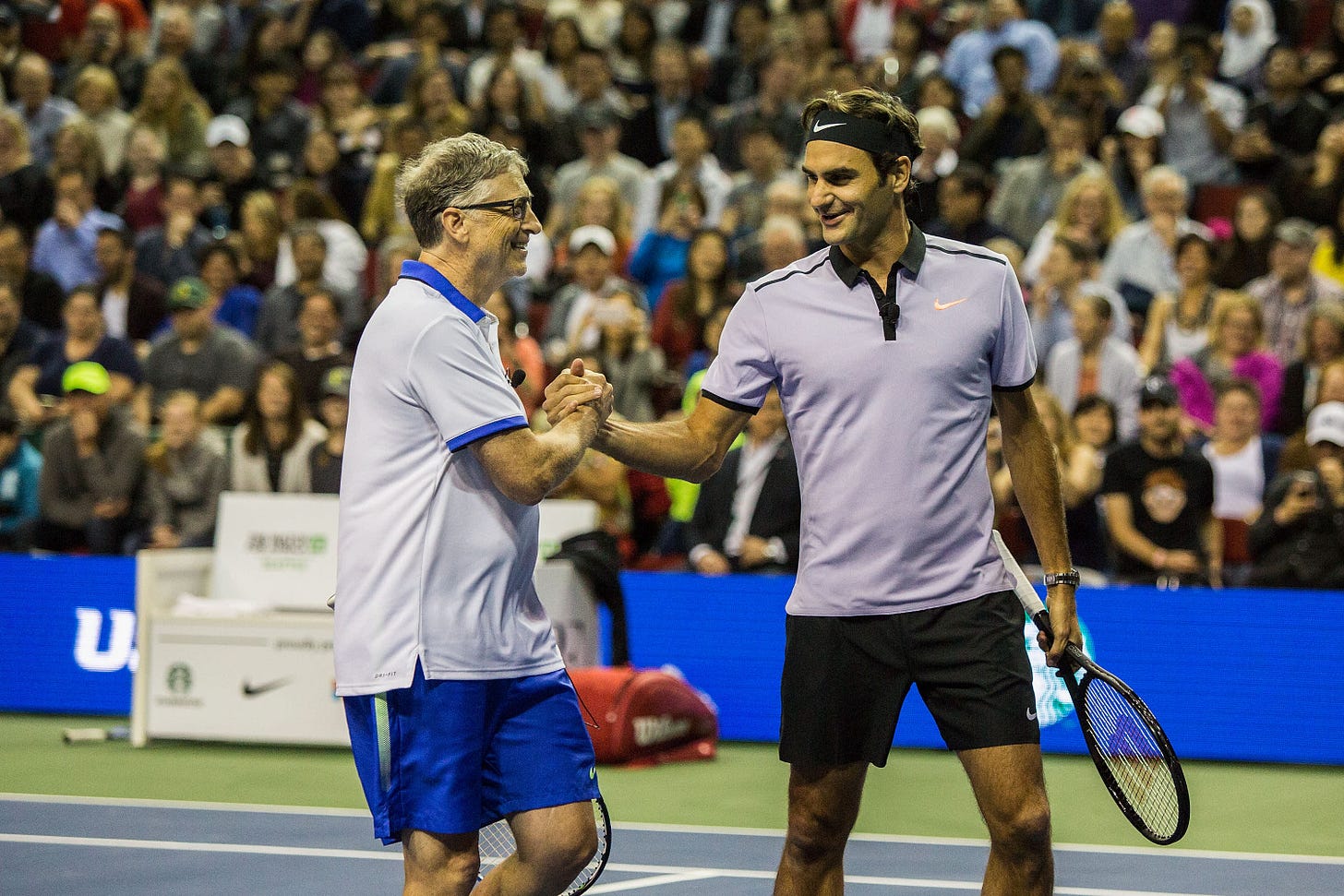seeing the court clearly
Q2.24 LP update excerpt
I’ve been watching Wimbledon lately. The players’ mastery fascinates me — what qualities led them to get so good? Their excellence starts with the presence they bring to every stroke and movement — a powerful quality that often ends up dictating the outcome of the match. Tennis, like all professional competitive sports, is about the pursuit of perfection by athletes who are all at minutely different levels of excellence — winning comes down to a player’s ability to react to each new shot with fresh eyes, steering the game toward their strengths and their opponent’s weaknesses as much as possible.
We see a similar trend in business. At the beginning, a startup’s strength is probably its ability to execute — the company’s speed and capacity to see opportunities clearly without being beholden to the past. Take Microsoft in the 1980s, when Bill Gates made the strategic decision to retain the rights over PC-DOS, setting Microsoft up to capture a great deal of the value accrued at the software layer and effectively commoditizing PCs. I highly doubt Gates knew how smart a move this was, but he was able to make it because Microsoft had next to no incentive to maintain the status quo and shipped fast (why they won the contract with IBM). More impressive is when large companies consistently see, capture, and capitalize on opportunities over decades, playing to their strengths even as those strengths change (Microsoft has done this sporadically, notable for moves like acquiring Forethought aka PowerPoint and more recently, the OpenAI deal). In tennis, this is the equivalent of a player consistently winning matches even as their opponents change and their body ages.
Winning over decades involves stepping back and striving to see clearly, identifying the opportunities your team is uniquely positioned to capture and compound on. I call this discernment. Discerning founders do everything they can to stay rooted in the present — forgiving themselves a thousand times so they can continue to see the bigger picture and act. Discernment is built on the back of countless hours of practice — 10,000 hours, if you ask Malcolm Gladwell. Putting in this time is easier if you simply derive enjoyment from playing the game you’ve chosen. Djokovic put it best: “I can carry on playing at this level because I like hitting the tennis ball.” People who have achieved mastery often speak like this — they believe that they’re doing the thing that they were expressly designed to do, so being present is something to be relished, not avoided.
This sense of destiny and something bigger than yourself is important. Mastery requires a purpose — a solid foundation of your sense of the good life, some degree of felt alignment with it, and the driving belief that the challenge you’re tackling will bring you closer to the ideal you hold. It’s a hunger for the catharsis of fixing something a person feels to be wrong (either inside or outside of themself) coupled with a specific vision for what it would look like for things to be right and the tenacity to do whatever it takes to make that vision real.
Execution, discernment, and purpose are three of the key ingredients to mastery — coupled with a lot of luck around timing and finding the right people to help you. I look for all of these traits in founders. Execution is the most easily observable, made evident by how they approach new problems/info. Discernment can be glimpsed in their reflections — they should have exchanged their innocence for wisdom, not just experience. Purpose usually shows up as main character energy — a sense that this is not someone you’d want to bet against. In searching for these qualities, I’m striving to see clearly too: approaching every founder anew, observing my reactions, and using every interaction to inform my judgment, without haunting or hindering it. I’ve found shared kinship in this pursuit amongst many of the most interesting founders — a fierceness in our collective desire to be very good at what we do and an incessant interest in the craft of becoming better.


I feel like discernment isn't talked about enough, and agree so needed for mastery! And a skill to continuously hone the decisions, and i thought your common on forgiveness (of one's self) is so critical to build this skill. Not as good at that yet as I'd like, and getting there!
An incredibly cogent piece of writing. Wow. Thank you for sharing.